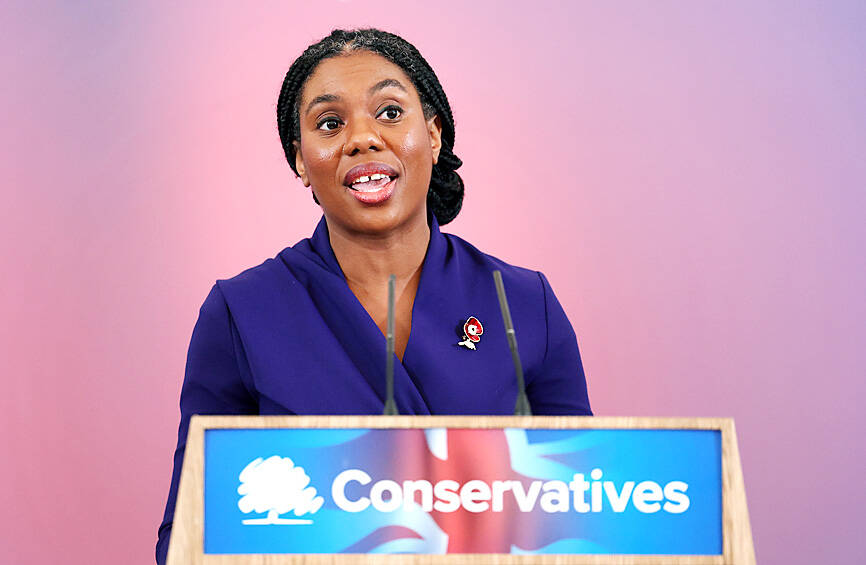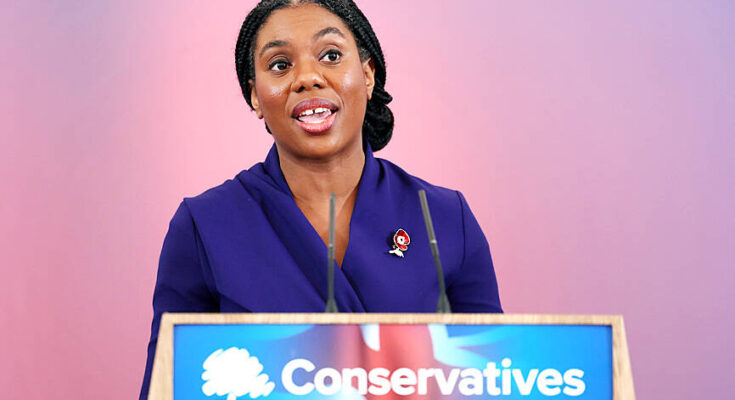AP, LONDON
Outspoken, right-leaning lawmaker Kemi Badenoch was on Saturday named leader of Britain’s opposition Conservatives, as the party tries to rebound from a crushing election defeat that ended its 14 years in power.
The first black woman to lead a major British political party, Badenoch has pledged to bring the right-of-center Tories “renewal” by pushing for a smaller state and rejecting identity politics.
Badenoch defeated rival candidate Robert Jenrick in an online and postal ballot of party members, securing 57 percent of the almost 100,000 votes cast, to Jenrick’s 43 percent.

New Conservative Party leader Kemi Badenoch delivers a speech in London on Saturday.
Photo: EPA-EFE
Badenoch, 44, replaces former British prime minister Rishi Sunak, who in July led the Conservatives to their worst election result since 1832.
The new leader’s daunting challenge is to restore the party’s reputation after years of division, scandal and economic tumult, hammer British Prime Minister Keir Starmer’s policies on key issues including the economy and immigration, and return the Conservatives to power at the next election, due by 2029.
“The task that stands before us is tough, but simple,” Badenoch said in a victory speech to a roomful of Conservative lawmakers, staff and journalists in London.
She said the party’s job was to hold the Labour government to account, and to craft pledges and a plan for government.
A business secretary in Sunak’s government, Badenoch was born in London to Nigerian parents and spent much of her childhood in the West African country.
The former software engineer depicts herself as a disruptor, arguing for a low-tax, free-market economy and pledging to “rewire, reboot and reprogram” the British state.
Like her rival Jenrick, she has criticized multiculturalism and called for lower immigration, although unlike him, she has not demanded that Britain leave the European Convention on Human Rights.
A self-proclaimed enemy of wokeness, Badenoch opposes identity politics, gender-neutral bathrooms and government plans to reduce carbon emissions.
During the leadership campaign she drew criticism for saying that “not all cultures are equally valid,” and for suggesting that maternity pay was excessive.



